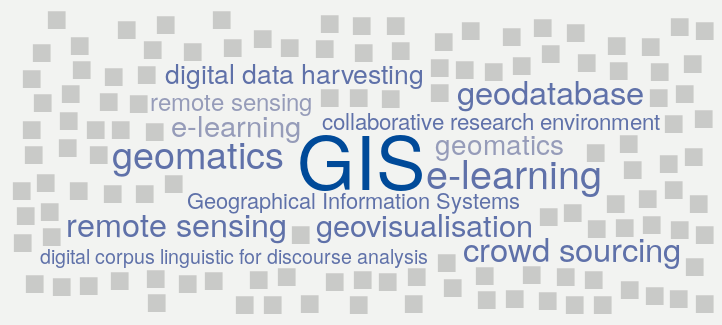e-Geography

Digitization has become one of the most cited central concepts of our time and is seen as one of the great tasks of the future. In geography, various aspects of this topic are usually investigated by referring to concepts such as "geomatics", "geo-communication", or "geoinformatics". Research topics are not only the mapping and analysis of socio-ecological and social conditions and processes, but also the changes caused by digitization itself.
At the Physical Geography chair group at Freiburg, e-Geography is concerned with geographic information systems, remote sensing, and spatial data management, in particular the setting up and maintaining of spatial information databases. Emphasis is placed on application in areas such as environmental research and environmental planning. In this context, not only the scientific research perspective plays a role, but also the question of the sustainability of education and knowledge transfer. These aspects are studied as part of developing the e-learning platform webgeo.de and the virtual research environment tambora.org. At the same time, developments in the field of social media are becoming increasingly important, with novel forms of data mining such as crowdsourcing and digital data-harvesting forming part of e-Geography research.
In human geography, researchers at Freiburg University develop digital corpus linguistic methods for discourse analysis. These also incorporate analyzes of social media, such as Twitter and blogs, as well as digitized print media corpora (see research Discourse Studies in Human Geography).

